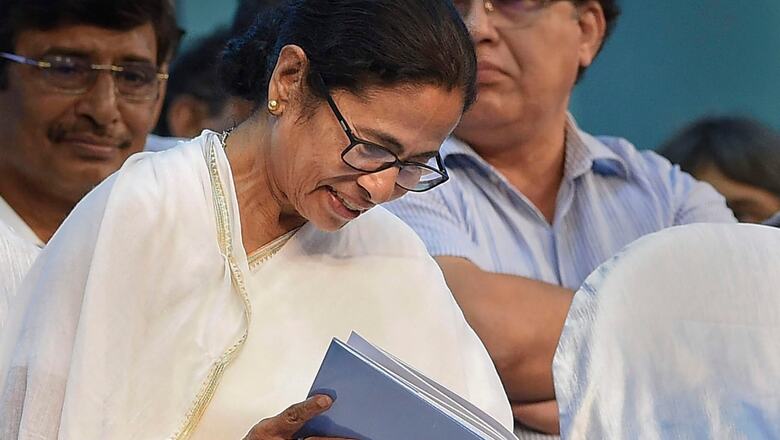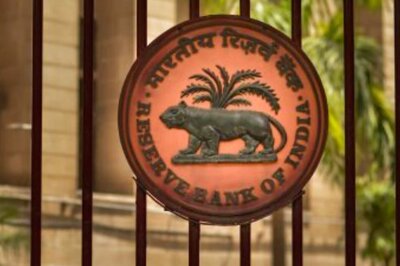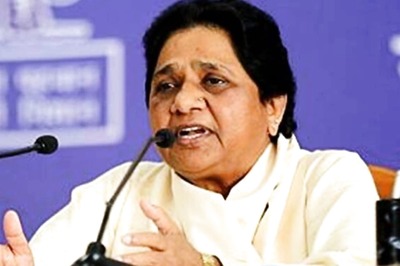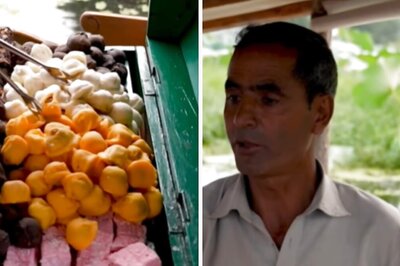
views
The country is witnessing a flurry of political activities in the run-up to the crucial Lok Sabha elections as politicians of the ruling BJP and the opposition’s INDIA bloc jostle to put forward their respective narrative on multiple platforms.
Amid frantic discussion over seat-sharing, common agendas, and ways to deal with the Ram Temple perception, here is a senior politician, who despite her political and administrative schedules, manages to write. Mamata Banerjee has taken an unbeatable lead among the serving Chief Ministers with 141 books to her name, News18 has learnt.
At least eight of her books were written in Urdu, while over 17 were translated in Santhali, Punjabi and Hindi. She has 136 published works, while five will be released on Thursday as she inaugurates the 47th International Kolkata Book Fair, said a senior member of Dey’s Publishing House, that publishes all the books written by the West Bengal CM and Trinamool Congress supremo.
The book fair in the city has always been seen as the second largest social and cultural festival in the state, after Durga Puja. Over a period of time, the book fair passed through a political and administrative transition, from the Leftist regime to Mamata Banerjee’s. From a Leftist-elitist-socialist affair, the book fair has now become one with more mass connect.
The Political Legacy
West Bengal, haunted by political violence, has a strange but strong association with books. The central political culture in the state has always revolved around the idea of literature, which led Mamata Banerjee to start penning down her thoughts and releasing them during the book fair. Her predecessor, Buddhadeb Bhattacharjee, has at least 19 published works to his name, which includes nine translations of Colombian writer Gabriel Garcia Marquez’s books, relevant to Bengal politics.
Even as her party and her government fight battles on several fronts – some of her party colleagues are behind bars in connection with corruption charges, while some are facing summons and raids by ED and CBI – the Chief Minister never gave up on her writing. In the middle of her administrative responsibilities and political ventures, she ensures that her books get released every year.
Her works deal with national and contemporary political narratives like NRC, CAA, the idea of Constitution, and religion. This year, her works include India’s history and heritage, among others.
The Book Fair Over the Years
The number of stalls at the book fair kept increasing over the years and so did the footfall with the government facilitating the infrastructure and taking care of other necessities.
In 2022, it had 560 stalls and saw a footfall of around 18 lakh. In 2023, the number of stalls grew to 647 and the footfall also swelled to 22 lakh. This year, the fair has registered 697 stalls, as per the data available with Bidhan Nagar Police Commissionerate that manages the fair and its administration.
Speaking to News18, Gaurav Sharma, Commissioner of Police, Bidhannagar said: “Kolkata Book Fair has always been a priority event for the government. It is our prestige too, given the city and state’s association with books and love for reading. We do everything possible to encourage and promote reading. We believe that books let a person focus, imagine and be creative in several ways.”
“Around 1,300 police personnel will be deployed in and around the fairgrounds to regulate traffic, secure the venue and manage crowd,” added Sharma. The police arrangements clearly show the scale and the magnitude of the fair.
To promote reading among children and locals in the area, the Commissionerate runs four community libraries, called ‘Boi Baris‘ (house of books). The libraries are run and managed by the police Commissionerate. Running ‘ free of cost’ libraries for the needy children and youths by local police stations is also a unique idea, that was adopted by Bidhannagar Police. The police-run libraries include books of all flavours and types, starting from the ones needed to prepare for competitive examinations to the story books and other literature, said another senior police officer of Bidhannagar.
Sudhanshu Dey, general secretary of the Publishers and Bookseller’s Guild, said: “The book fair has always been special and it always received a great deal of government support. But, Mamata Banerjee’s association with the book fair and her active participation made things more feasible and viable for us. This year, around 28 countries will participate in the fair.”
The Transition & Political Relevance
From intellectual superiority to government control, the Kolkata book fair is a witness to the changing times of West Bengal. Book reading still continues to be a habit among both urban and rural populations in the state.
When in opposition, Banerjee had been mocked and taunted for her humble background and undiplomatic way of speaking. But towards the end of her first term as Chief Minister, Banerjee had ensconced herself in the Bengali ‘Bhadralok’ culture with 68 published works as author.
The Kolkata Book Fair is not just a commercial exercise, but also a political space where stakeholders find a platform. The organisers, Publishers and Bookseller’s Guild, gave space to the Trinamool Congress when the government was run by the Left Front and later the fair had boom stalls by all political parties, including the Leftists, the RSS, VHP, BJP and others. It also has space for pro-Naxal literature.
A senior IAS officer, who saw the transition from the Left regime to Mamata’s, said the fair has passed through a phase and has now become more ‘democratic’ in nature.
“The book fair is now absolutely non-partisan. It is more culturally unified than it was. The government has created a huge infrastructure in terms of connectivity and policing. It is a two-week-long festival that celebrates ideas and ideologies. From a platform for literate-elite, it has now become an open space for people. With the CM’s keen interest, the book fair has managed to supplant Leftist thinking pattern. In a way, the latent Brahminism seems to be less pronounced,” said the senior IAS office, requesting anonymity.



















Comments
0 comment